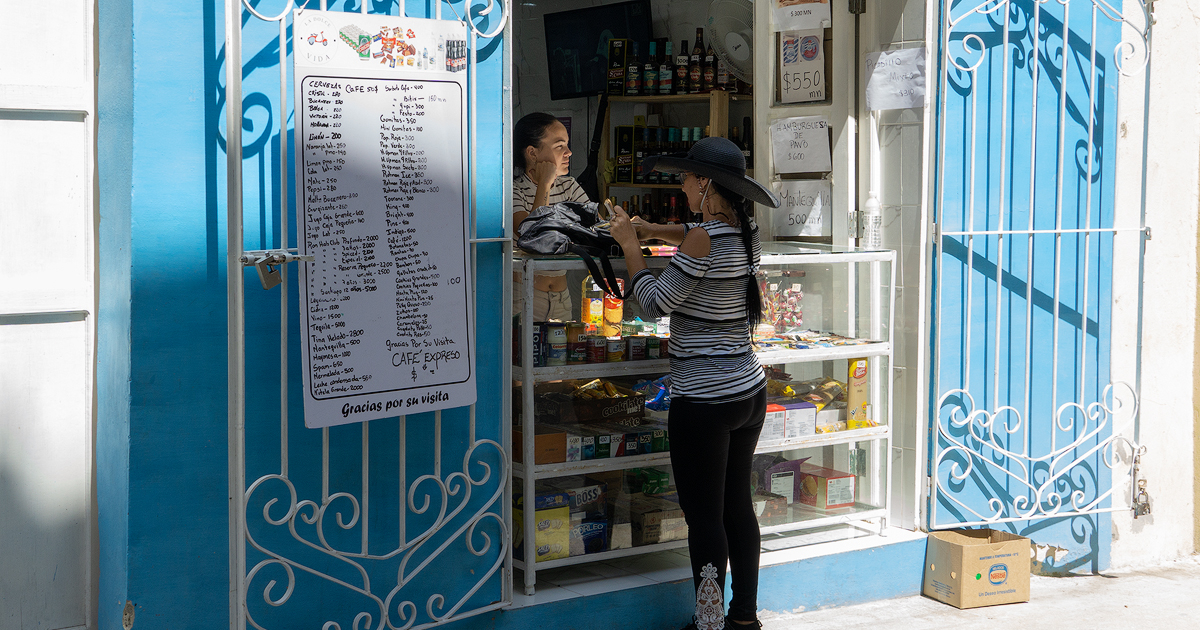The Vice Minister of Finance, Lourdes Rodríguez, has confirmed that, as reported by CiberCuba, the government is preparing to impose maximum price caps on five essential consumer goods in the island: detergent, powdered milk, soybean oil, pasta (spaghetti, etc.), chicken, and sausages. According to Rodríguez, who spoke to state television, this is a "temporary regulation" that was scheduled to start on July 1st. However, it has been postponed but is backed by an army of 7,000 inspectors ready to enforce the rule.
Rodríguez clarified in statements to Canal Caribe that additional officials have been trained to implement Decree 30, which outlines the sanctions regime for price violations. The Vice Minister explained that this new cap on the most consumed foods by Cubans, in a climate of hyperinflation and rising living costs, "was proposed since May" and was supposed to take effect on Monday, July 1st, but has been delayed. Nevertheless, it is "ready to become a systematic enforcement mechanism."
Lourdes Rodríguez assured that to conclude that the price cap on the six products is a positive measure, 3,400 "exchanges" with representatives of SMEs have been conducted, which she described as "favorable and fruitful." These meetings primarily addressed issues related to the costs of acquiring goods and transportation expenses.
Various state entities announced on Facebook that the decision to delay the implementation of the price caps resulted from analyses and exchanges between government representatives and non-state management forms, emphasizing that dialogues will continue.
CiberCuba accessed the content of one of these meetings where the Vice Minister of Finance announced that the maximum retail price for chicken (thigh and drumstick package) would be set at 680 pesos per kilogram (310 pesos per pound); powdered milk at a maximum of 1,675 pesos per kilogram; pasta (spaghetti, etc.) at 835 pesos per kilogram; sausages at 1,045 pesos per kilogram; powdered detergent at 630 pesos per kilogram; and soybean oil at 990 pesos per kilogram. These prices, she clarified, "will be made public prior to their application."
Currently, a pound of chicken sells for 370 pesos in Havana; oil ranges between 1,200 and 950 pesos; a kilogram of powdered milk costs 2,500 pesos; detergent is 250 pesos; a package of 10 sausages is 400 pesos; and spaghetti is 350 pesos. The Vice Minister emphasized that local territories will have the autonomy to "negotiate prices with retailers" and highlighted that this measure aims to "improve price policies."
SMEs' Perspectives
In a recent meeting with the Vice Minister of Finance, entrepreneurs openly expressed to the government representative that they are under significant fiscal pressure (many taxes) and voiced concerns that the price cap does not include VAT (Value Added Tax) they have to pay when purchasing goods, which they often cannot pass on to consumers because it would make their products unsellable. Moreover, they mentioned that international market instability does not guarantee stable prices. If purchases are not profitable, essential items like chicken and powdered milk could disappear, as is happening in many parts of the country.
SMEs also informed the Vice Minister about the serious issues they face in refueling tankers to distribute goods or unload containers at Mariel Port. Lourdes Rodríguez did not offer solutions to their problems, particularly those related to the exchange rate, which the government does not control.
Understanding the Cuban Government's Price Cap Enforcement
This section aims to answer some common questions regarding the Cuban government's new price cap enforcement and its implications for the economy and daily life in Cuba.
Why is the Cuban government implementing price caps on essential goods?
The Cuban government is implementing price caps to combat hyperinflation and the rising cost of living, aiming to make essential goods more affordable for the general population.
What products are affected by these price caps?
The price caps will apply to detergent, powdered milk, soybean oil, pasta (spaghetti, etc.), chicken, and sausages.
How many inspectors will enforce these price caps?
The government has mobilized 7,000 inspectors to enforce the new price caps.
What challenges do SMEs face with these new regulations?
SMEs are concerned about the significant fiscal pressure from taxes, the exclusion of VAT in the price caps, and market instability. They also face challenges in fuel supply for distribution and exchange rate issues.
